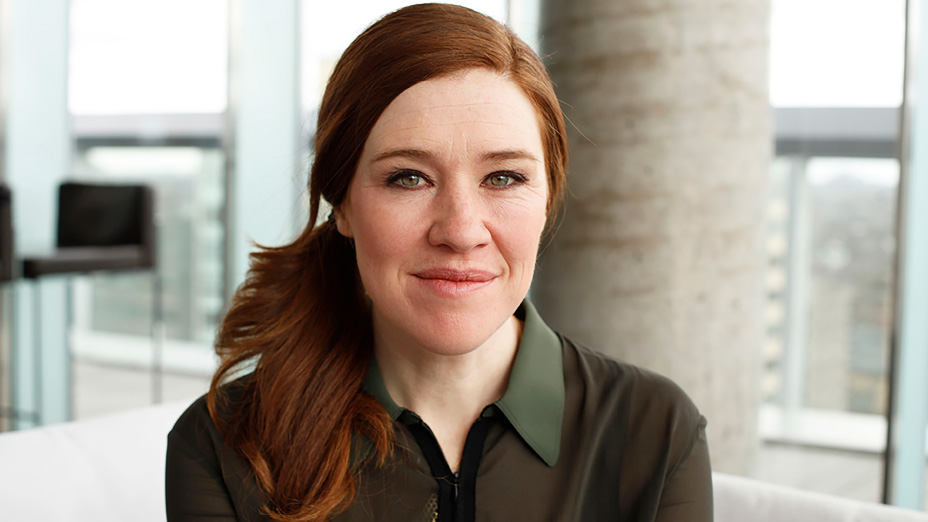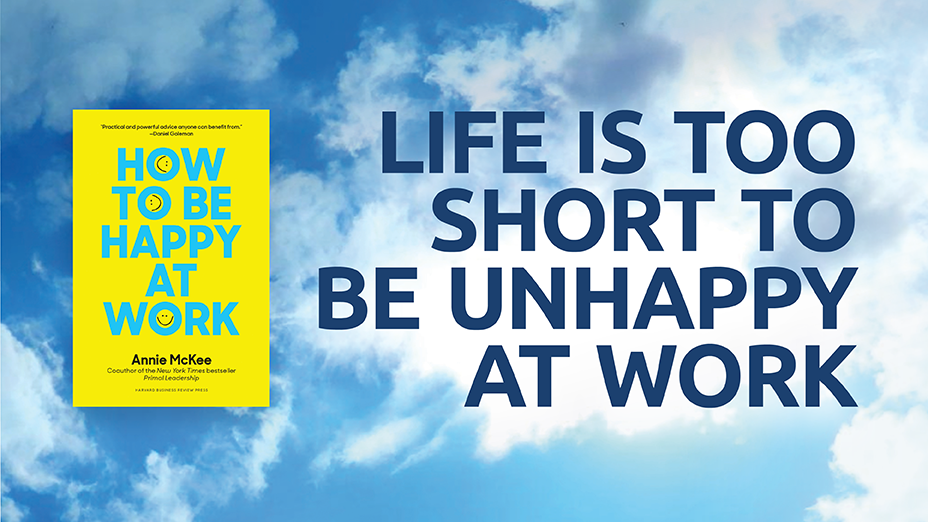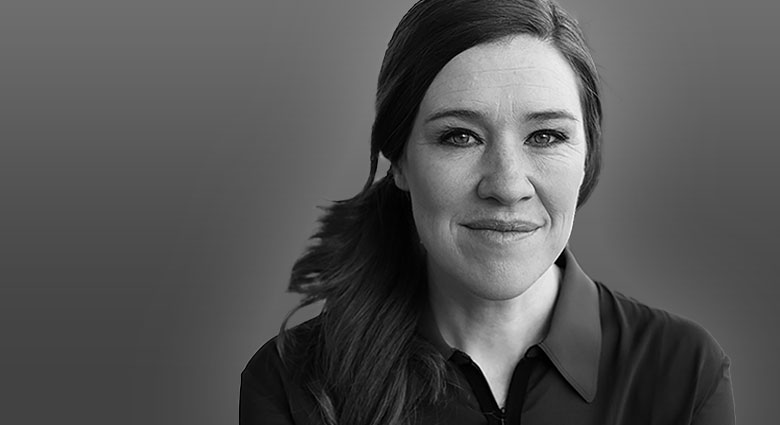We sat down with six-time Olympic medalist Clara Hughes to learn how her experiences as one of Team Canada's most successful athletes translate into her current role as an advocate for positive mental health support in our ever-demanding society.
Focusing on how adversity is a necessary component for leaders to navigate and fully appreciate success, Clara insightfully explains how the element of human connectivity is at the core of achieving mental wellness.
Knowing how to listen in a non-judgmental way can make the difference for a person who might just need to be heard and believed in a time of struggle.
1. In the aftermath of the COVID-19 pandemic, many of us are dealing with mental health. What are the pitfalls that you feel can erode or even sabotage mental wellness in one’s career?
It’s so important to acknowledge the stress of these past two-plus years. No matter who you are, life has shifted dramatically. Everyone has experienced this time differently. It’s crucial to acknowledge what this experience has been and continues to be. To go back to the concept of ‘normal’ is unrealistic for most people. Failing to acknowledge the layers of stress and how work and everything our busy lives entail has changed will only exacerbate the load of pressure people feel. Finding ways to sit with the experience is important for not only reconciling but finding ways to move through what continues to be an incredibly challenging time in a more grounded way. Learning how to respond instead of reacting. Slowing things down to feel a more manageable place to once again step into work and life roles with a more grounded approach is crucial for survival. Remaining in the place of hyperstimulation is not sustainable for anyone. It takes time to make these small shifts in outlook and approach, but it’s time well spent when it supports positive mental health.
2. You have been vocal about the importance of teachers/coaches who supported and believed in you throughout your career. How can an organization and its leaders best support a team member who is dealing with mental health?
An organization and its leaders can better support team members by creating and upholding a non-judgmental, professional space for everyone who might be dealing with a mental health concern. We all have mental health, and if you can create a workplace environment that breaks down the stigmas attached to mental illness and instead fosters the concept of positive mental health for all, you will create a space where people can feel supported. Providing opportunities for every level of the workforce to be educated on mental health and empowered with the potentially life-saving tools of mental health first aid and a trauma-informed foundation of understanding as to what these concerns could allow for people to know how to help when to help and most importantly how to help a person get assistance. What are the resources, and how can they be accessed? Where are these supports available? Workplaces that openly offer and provide support for employees when it comes to mental health can help bring a person to a place of wellness. To deny this is to deny the time we are in after such a massively difficult few years that has only elevated the stresses that can lead to a mental health crisis. The entire world has experienced this. It’s proven that the earlier a person receives help the greater the chance of healing they have. Invest in the workplace to allow for this environment, and you will have a healthier, more productive place where everyone can thrive.
3. What would you explain to both today’s leaders and their team members about the value of human connection in the workplace?
There is a downside to this remarkable time we are in when it comes to technology and advances in the digital workspace. We are so hyper-connected that we are disconnected. We are literally glued to our phones in and out of our jobs. To create a place that is grounding, where people want to look up from the screen and get to know one another is to create a team that is rooted in human-to-human connection. We need to connect to know each other. To care about our work and our roles and the businesses we lead and represent. Providing opportunities for colleagues to connect in a more personal yet fully professional way can be a powerful foundation leading to jobs well done. Personally, I don’t think there is a better place than in the natural world to do this. Every city has urban green spaces and a multitude of ways to connect to place, space, self and others. Be creative and bring your team back to the place of knowing each other and finding ways to work as a strong unit in this time of hyper connection. Use the wonderful and rich elements of creativity to bring people together. Nature, music, arts, and dance are but a few of the elements that can bridge the gaps and allow us to connect again as people.
4. As an Olympic athlete, you had to reach deep to find the strength to persevere even when the task at hand seemed insurmountable. Where do you feel today’s women in leadership roles can draw similar strengths?
Knowing that each victory you have sets the tone for the women and girls who will follow your lead is a huge motivator to me. We all have this opportunity. There is still so much ground to be covered in terms of gender equality and cultural representation so that all people can see themselves in the places and spaces of success so that every young person can not only dream of becoming something but see clearly it is possible. The more visible we are in roles of leadership and mentorship, the stronger we all are. I once learned from a great teacher that you cannot want greatness for yourself until you want it for everyone around you. This rings true for women in the workforce, in community, family and in life.
5. Why does success require an element of struggle? How can we channel our adversity (both internal and external) into an ambition to succeed?
The human condition spans the spectrum of struggle to joy. There is no way to have only one and not the other. You could think success and joy are synonymous, but I’ve met so many people who are truly miserable in their success. It’s a powerful, grounded place to be when you can embrace struggle and use it as fuel to light your dreams on fire and keep the flames alive. My greatest moments are when I can make mistakes, when I can ‘fail’ along the way to what I know I can do, and I can laugh at myself. I can disarm the pressure of feeling I have to be good all the time at everything. There is, however, a balance to be had. There cannot be too much struggle because it will overwhelm the capacity to laugh and learn. Which is why it’s important to create opportunities that are personal and often private elements to maintain this fine balance. Taking and making the time for mindfulness and connection is key to keeping this balance.
Learning how to not only endure but grow from struggle allows for not only a greater level of development but a more realistic view of what success is.
6. How has the idea of success/excellence shifted throughout your career? What advice would you give today’s aspiring leaders who are striving toward the concept of “success”?
My idea of success changed dramatically during my 23 years in sport. It continues to change. I value more and more the places and spaces in between the big moments I’ve experienced. The quiet time of grounding into who I am outside of my success has allowed for an even greater sense of achievement that builds an energy inside that people connect to. So it’s more about what I give to others in my success than what I have for myself that matters to me. Realizing this was a hard set of lessons. When you win that big thing and realize it’s just more stuff, it can be crushing. The greatest lesson for me was learning that nothing I have will make me happy unless I have that connection to who I am without these medals or achievements. This is the place where I am grounded and can project the good and encouraging energy of hope and possibilities to others.
7. How can leaders demonstrate both an ‘open heart’ and an ‘open mind’ in today’s workplace?
Leadership can be an exhausting, lonely place to be. I go back to that place of wanting others to be good and successful. Realizing that the people I get to work with, to mentor and encourage, are also a phenomenal source of energy for me in a leadership or teaching role. It’s almost like a portal into the mind of the beginner that opens you up to learning no matter who you are and what you’ve achieved. Find these inspiring people around you and know we all have more to experience, to achieve and to share. To learn! When you think you know everything you are really stuck, and that’s a lonely place to be.





.png)




What Did You Think?